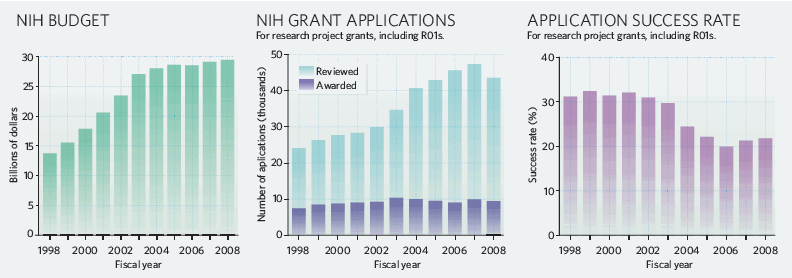|
|
|
|
|
|
|
News & Views item - February 2009 |
![]() University of Sydney V-C Speaks Out. (February 7, 2009)
University of Sydney V-C Speaks Out. (February 7, 2009)
Professor Michael Spence assumed the vice-chancellorship of Sydney University on July 11, 2008.
He made the popular media a couple of days ago when as a member of the word of the year selection committee for the Macquarie Dictionary he along with Professor Stephen Garton, the faculty of arts dean; the poet Les Murray; and Susan Butler, the Macquarie Dictionary editor voted for toxic debt as the winner.
Now in an opinion piece for the Brisbane Times headed "Bipartisan approach is necessary to maintain our academic edge" he issues an entreaty for the federal government and opposition to back the recommendations of the Cutler Review Of The National Innovation System and the Bradley Review Of Higher Education.
The global financial crisis demands both short term and long term responses. The higher education sector, representing 1 million students and staff, has a crucial role to play in Australia's recovery.
In teaching alone the education sector's $13 billion international export contribution to the economy will be vital in helping us fight this downturn. But what of the long term? The higher education sector has an even more important role to play in building for Australia's future.
The two reviews cannot be viewed in isolation. Together they provide a once-in-a-decade opportunity for the Commonwealth to introduce a coherent package of reforms to strengthen the quality of university education and research.
[W]e need to sustain our fine research universities in their work of fundamental discovery and innovation. This is a time to invest in knowledge so that we are in a competitive position both to meet the current downturn and to build a prosperous future... The current funding arrangements, which in effect punish those institutions most successful in competing for research grants, cannot be continued. The reforms proposed in the Cutler review call for funding the full costs of university research, focusing public funding for research to support quality wherever it occurs, expanding international research links and improving research training. Such changes are all vital to underpin a dynamic innovation system... [And] we cannot afford to lose the skills and talents of a generation by under investing in education and training now.
Professor Spence is also in favour of the voucher system proposed in the Bradley Review and he decries the fate of the "more sweeping reforms proposed by the ill-fated West review of 1998". But perhaps most importantly: "The challenge faced now is to make a short-term investment that will reap long-term benefits: to stimulate the economy, invest in our young people, underpin social cohesion, and build our productivity. Far from deflecting the current government from their education revolution, the current financial crisis reveals it to be all the more necessary."
What is left unsaid is the matter of dealing with the long-term-overall environment for the research-development-innovation troika. For example the marked increase in resources provided to the US National Institutes of Health between 1998-2005 was followed by an immediate plateau and has resulted in a sharp decline in the success rate of grant applications. As a result gifted researchers are being lost.

Credit: Nature